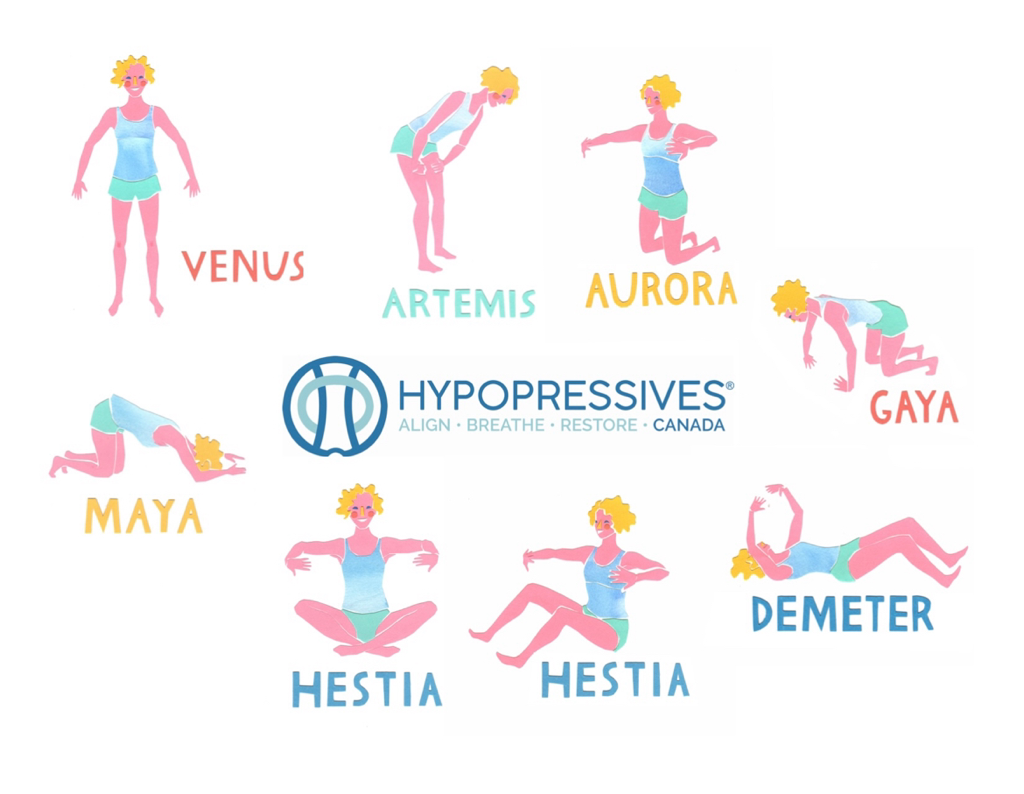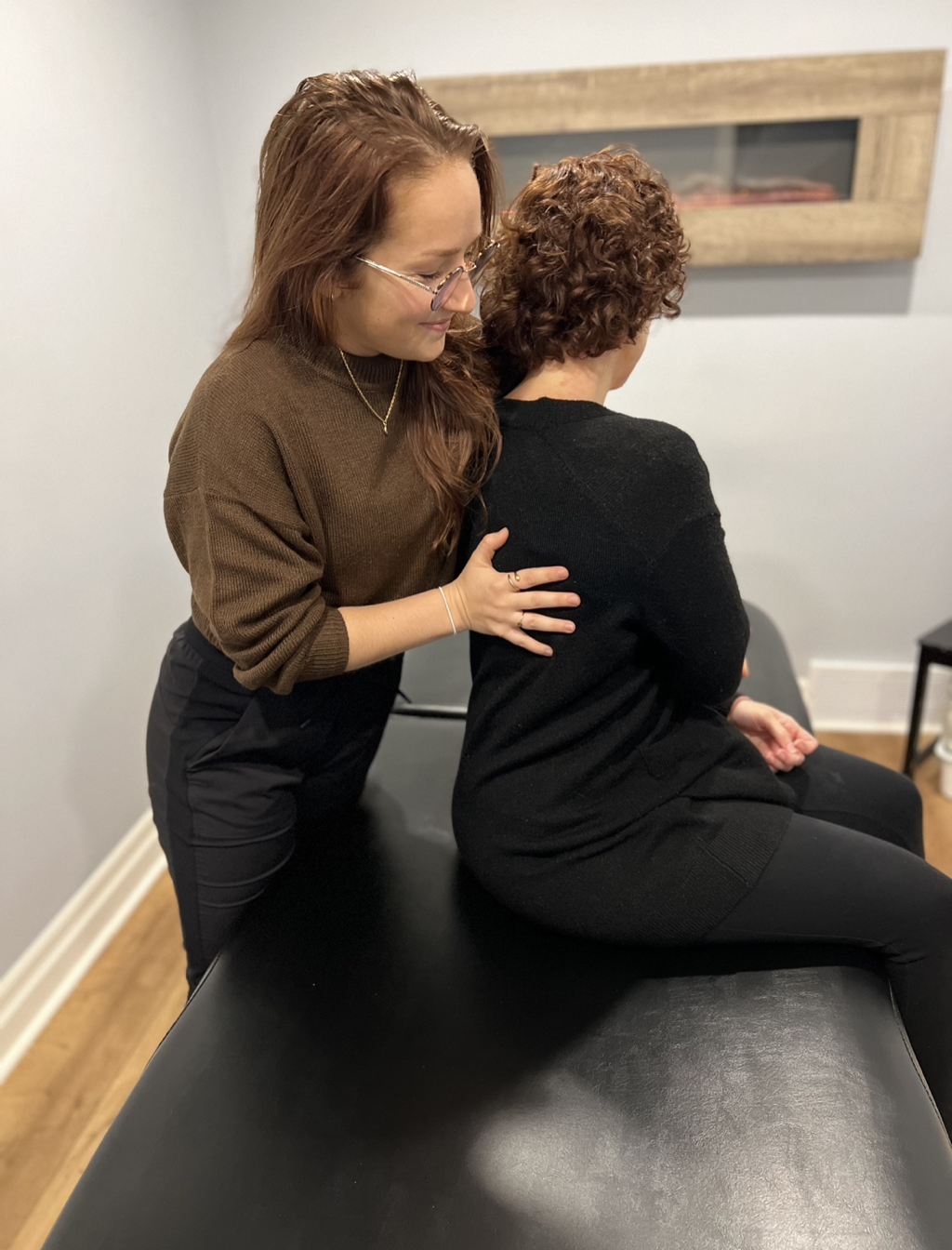|
One of the most frequent uses of acupuncture and Traditional Chinese Medicine (TCM) is for fertility. In TCM, acupuncture is an extremely effective tool when diagnosing cases of infertility due to deficiency of ‘yang’ (function) or deficiency of ‘yin’ (material) in the body. In addition to inquiry upon in-take, your acupuncturist will use tongue and pulse diagnosis to get a clear picture of what could be possibly hindering a successful pregnancy. Many factors can lead to infertility, however a common reason is due to stress. In order for anyone to conceive healthily, the body must be in a homeostatic state–well rested without any stressors. In Traditional Chinese Medicine, the heart must be full and ready; heart qi (energy) must be able to flow. Causes of blockage within the heart's energy system include unresolved emotional disturbances and stress. Acupuncture can address any stuck emotions and alleviate symptoms of stress to elicit a calm, relaxed or grounded state of being. Typical treatment for fertility includes one treatment per week for 12 weeks. For females, we use acupuncture to prepare the body for implantation. Different acupoints are used at different points in the menstrual cycle to ensure that blood, yin and yang are replenished. In males, addressing issues with the kidney organ system–the system responsible for reproduction in TCM–can encourage healthy sperm and libido. Acupuncture may be used in conjunction with intrauterine insemination procedures, in vitro fertilization or natural conception to encourage all the stages required to conceive. If you or your partner is struggling with fertility, acupuncture may be the answer you’ve been missing! Explore the option of Traditional Chinese Medicine and Acupuncture for fertility with Tammy, our Registered Acupuncturist by booking an appointment at Dalhousie Health & Wellness!
0 Comments
There’s been a surge of talking about perimenopause and menopause in the last 5-10 years as women are going through the change and realizing - it’s not all it was promised to be. We don’t stop menstruating and just go into bliss; hot flashes, low sex drive and vaginal dryness or bladder leakage - they’re real. Not to mention the mood changes and sleep concerns!
I don’t know about you, but when I feel like people are lying to me, I get pissed. And perimenopause has been fraught with some uncomfortable untruths that have been quietly hidden. I don’t think this was intentional, but I think we can support ourselves more fully, body, mind and soul. We’re not betraying the matriarchal lineage that came before us by not fully expressing that fears and discomfort in this time of change, and we have more resources and research than the ladies we came before us. This is also a season of grief before peace- realizing you’re aging can make you feel isolated and alone. We can be heard and we can get help! Here are some truths you can expect and some ideas to reach out to your health professionals for help regarding: 1. Your period ending is not the end, it is the beginning. Menopause begins when you haven’t had a period for 1 year. You can approach that time for up to 10 years. That’s perimenopause. As a result, there is a significant period of time where adrenaline and cortisol are shifting around in response to this shift as your hormones decrease, and will likely add to the turmoil in this time. 2. Estrogen loss creates a lot of symptoms many years before it’s evident in blood tests. You are not going crazy, your body doesn’t like the change. Estrogen receptors exist in the joints, tissues, brain, all over the body. Makes sense why this feels like a full-on assault. 3. Estrogen loss isn’t the only hormone that affects you in menopause. Little progesterone? Sleeplessness. Low testosterone? Challenges with energy and mood and libido. Low DHEA? Issues with energy and vaginal dryness. The importance is finding the right balance for you specifically - your friend will have different recommendations. It’s wonderful to commiserate, but remember your symptoms are likely different. 4. Hot flashes don’t have to be full of sweat. I’ve heard people having a hot leg, a feeling of panic coming over them in waves, getting warm to full out stripping. If they come out of nowhere and you’re not in active grief or crazy stress, it’s probably a hot flash. It’s okay to not like them, and have them supported. 5. Hormone replacement isn’t the terrifying thing that it was originally positioned to be. This is mostly because the wrong doses were applied, in the wrong form, in the wrong way, to the wrong people. Here’s what we know: - Oral estrogen taken alone leaves women vulnerable to blood clots and strokes. We don’t do that anymore. - Oral estrogen with progesterone or progestin is protective against endometrial cancers and give benefits including improved bone density, reduced/eliminated hot flashes, improved energy, improved joint pain, better sleep, supported anxiety and depression. Ladies with high blood pressure, are overweight, and have diabetes and are over 60 are not often given oral estrogen with these risk factors. - Transdermal (on the skin) estrogen with progestin or progesterone gives lower risk of stroke and clots, which still protects the uterus and other cancers, but gives the benefits of the oral as well. - Vaginal estrogen (estradiol, estrone, or estriol) has even fewer risks than all of the above and really helps with dryness vaginally which improves sexual health and reduces instances of UTI and bladder issues. So can vaginal DHEA for vaginismus, lichen sclerosis, vulvovaginal atrophy and sexual arousal disorders. 6. There are herbs that mimic estrogen, progesterone, testosterone and DHEA. Are they as strong as hormones? No, but for people who can’t do hormones that can be a great avenue to try. The body does respond to them. The hormone receptors feel happy! It’s a win-win. Note: Not all herbal formation is the same. Each one has different ratios of estrogen-like, progesterone-like…yadda yadda, you get it…herbs and so sometimes your body would prefer more estrogen-like help or other hormones. So in this way, seeing a herbalist or ND for this knowledge is important. 7. Letting go of a timeline is important. When we don’t rush ourselves to be on the other side to be “all better” then we can support our symptoms right here, right now. Who cares when menopause is over? All that matters is that you live a healthy and happy life, which means supporting your body’s symptoms. 8. You might gain weight. It will be in your mid-section first, then probably your hips. Yes, it blows. This has to do with #1 (see above). Your solution? Supporting your hormone symptoms, lifting weights, managing your diet to be more Mediterranean in nature. Reduce your carbs, increase your protein. Make sure your sleep is supported, that helps a lot. 9. You will change in personality a little, and your needs will shift. This is also normal. You are in a phase of life women recognize as “no Fs to give” or “it’s about me”. Don’t be surprised if you start to shift away from things you used to tolerate. This is also normal. Embrace the change, and love yourself in the acknowledgement that you deserve a happy and peaceful life. You will still be a wonderful you at the end of all of this. If you want all of the scientific data, check out the NAMS (North American Menopause Society) website nams.org. There are a bazillion books on the market, here are a few good ones: The Menopause Handbook - North American Menopause Society The Menopause Manifesto - Dr. Jen Gunter The New Menopause - Mary Claire Haver The Natural Menopause Handbook - Amanda McQuade Crawford Reach out if you need support from your health care professionals at Dalhousie Health & Wellness. Educate yourself and trust your symptoms! Remember, you’re not crazy, it’s just peri- and regular menopause. ~Dr. Aoife MSc, ND Spring is that time of the year where the Earth awakens to new growth of trees, plants, grass, shrubs; being reminded that the flurry of bees and flies are back in town. We may notice bird nests or the new hustle and bustle of activity. This is the start of the “Yang” part of all the seasons in the Northern Hemisphere. We all know too well how being stuck indoors during a Canadian Winter can drag out! If you are still feeling like you are in hibernation mode, want to stay in bed, feel ‘numb’ or have been diagnosed by another practitioner with clinical depression, Acupuncture may assist with enhancing the mood and brightening your spirit. It is always recommended that you also speak with a licensed therapist during acupuncture treatments. This allows the brain and body to work with the stuck ‘qi’ or energy. Acupuncture may relieve symptoms of anxiety, feeling ‘low’, heart palpitations, insomnia, overthinking, mood, anxiousness, fear, frustration or melancholy. A proper treatment plan will be discussed for each individual case. An initial visit starts us off with your own individual diagnosis through tongue and pulse examination, which will assist us in diagnosing the correct Traditional Chinese Medicinal pattern. Life is about balance and the body is no different. A good walk in nature, movement/exercise, diet considerations and breathwork can all abate feelings of anxiety. Acupuncture can leave a person feeling relaxed, sleepy, rested or grounded with an overall sense of well-being. Perhaps it’s time to consider acupuncture as part of your health plan! Explore all the options of Traditional Chinese Medicine and Acupuncture with Tammy, our Registered Acupuncturist by booking an appointment at Dalhousie Health & Wellness! Did you know that acupuncture at Dalhousie Health & Wellness can be used as an aid in digestion? Or that it can assist with eliminating weight gain? By stimulating the body’s nervous system, we can nudge our sluggish digestion system to perform optimally. By inserting thin needles into certain ‘acupoints’ on the body, the bowels and lymphatic system respond by eliminating stuck energy or ‘qi’. With proper diet and exercise, acupuncture could be considered when attempting to shed excess weight. Oftentimes, weight gain is attributed to a clogged lymphatic system, slow bowel movement or excess water that has not been filtered by the kidneys. In Traditional Chinese Medicine, diet and movement are particularly important in digestion. In fact, the Chinese have invented an organ clock that prescribes at which time one should eat, move and rest. Acupuncture may relieve symptoms of digestive pain, vomiting, nausea, indigestion, bloating, constipation, diarrhea, heartburn and incontinence. Explore all the options of Traditional Chinese Medicine and Acupuncture with Tammy, our Registered Acupuncturist by booking an appointment at Dalhousie Health & Wellness! Hypopressives for Pelvic Health, Postpartum Recovery, Diastasis Recti & Urinary Incontinence2/5/2024 Hypopressives are becoming more popular and now available with Dr. Meredith Hodges at Dalhousie Health & Wellness. Hypopressives aim to reprogram the automatic function of the core, while helping to support the pelvic floor. The technique involves breath work, breath on apnea (a breath hold technique to lift and activate the deep core) and postural poses.
The Hypopressives technique is a series of poses and breathing exercises that were originally created to help with postpartum recovery and pelvic health (pelvic organ prolapse and urinary incontinence). The technique has grown into a fitness program for everyone to enjoy. The benefits go beyond the postpartum body and span to everyone from the high level athlete, seniors and of course helpful in postpartum recovery. The technique aims to train the pelvic floor muscles, transverse abdominals, diaphragm and multifidus. This group of muscles can become weak or, simply not function at the proper time. When one or more of these deep core muscles isn’t functioning optimally we end up with injury (hernias, low back pain, disc herniations, sciatica, pelvic organ prolapse, urinary incontinence, diastases recti…and the list goes on.) Hypopressives are a gentle and safe way to train the weakened deep core, allowing you to get back to the activities affected by pain, hernias, pelvic organ prolapse and the postpartum body. One of the most popular benefits of training with the technique are flattened abdominals, improving the gap associated with diastasis recti and a decreased waist size- or help correct the “ mummy tummy”. People often notice less urinary leakage and a decrease in prolapse symptoms with a consistent program. The benefits extended to decreased pain (in the hips, back, pelvis and sciatica) and improved sexual function. If you would like to improve your pelvic health, prevent injury and ease recovery then Hypopressives may be a great option for you. At your next visit with Dr. Meredith Hodges at Dalhousie Health & Wellness, you can look forward to exploring the benefits of hyporessives and discussing if they are the right fit for YOU. Reflux is a common term we hear and a common concern among parents. But what actually is reflux? Let’s start at the beginning and discuss types of reflux in babies, the causes, common signs and how chiropractic care can help manage its impact on the body. In short, reflux means the movement of liquid the wrong way through a valve. This means stomach contents are coming up the wrong way into the esophagus. In general reflux is normal for the body and is an important function for our bodies to be sick when needed. There are two main types of reflux in babies:
Reflux almost always has a cause, and in many cases it is multifaceted. Some common causes are;
Currently, there is no one single test that can diagnose reflux as it is often a combination of physical assessments and diagnostic testing. As discussed earlier there are two types of reflux, GERD and GER. The distinction between these two conditions can be difficult, especially in infants. However, the correct distinction and diagnosis is key to treating the condition. What do chiropractors assess for in a baby with reflux? After a thorough history of your little ones signs and symptoms, we will do a detailed physical exam. We assess the whole body for tension and pay special attention to the diaphragm, neck, back and abdomen, we assess spine for restricted joints and we assess tongue and jaw function to ensure proper latching happens during feeding. Reflux in babies can be challenging, but with the right information and strategies, parents can help their little ones find relief. Remember, every baby is unique and having a team of health care professionals that work together to help you find the root cause is key for you and your baby. Supporting babies and families is something I’m passionate about, let me know if you have any questions. See you at your next appointment at Dalhousie Health & Wellness. It’s January - time to get crazy and cut into the cutting edge of the best person you want to be, right? Wink… I have something else to suggest. Many people (including myself) felt that 2023 was very depleting. January 2024 many are recovering from a tough year, many illnesses in the fall of 2023, and being mentally and emotionally depleted. In chatting with many of my patients, we’ve been looking at the things that deplete deep sleep and deep rest…and tackling those things can be a major game changer to making the right decisions this year. What could be the right decisions?
So the real reason you’re still reason, is how do we get deep rest? It’s a combination of moderating our hormones (the cortisol-adrenaline pathway) and allowing ourselves to be in a state of rest, on purpose, once a day. It’s hard to know this without testing (hint, hint..we do this) however there are a few tell-tale signs that your cortisol might not be distributing properly:
So now you have some ideas. While you’re waiting to see your local ND, we also need to work on activities that calm your body and mind because as we know, the mind-body connection is vital for health and well-being. Think of a time where you know you will have few distractions and it’s all about you. Whip out a colouring book, a great novel you have been wanting to finish, a cozy blanket, or a meditation or podcast that makes you feel relaxed. Give yourself 20-30 minutes where you don’t have to do anything, and if your brain tells you to feel guilty, remind yourself that this is part of your deep sleep time. Next, it is time to track your sleep. Head to instagram where we posted all about the deep sleep cycle and how you can maximise your deep sleep time. Hope these ideas help. Need guidance? Book an appointment at Dalhousie Health & Wellness and we’ll chat further. - Dr. Aoife How can Osteopathy at Dalhousie Health & Wellness help you through this flu season?
The immune system's function is based on the health of the circulatory and lymphatic system. When there are mechanical restrictions in our structure, i.e. postural issues, chronic aches and pains, repetitive strain patterns through sport, there is stress placed not only on the soft and boney tissues of the body, but also onto the fluid mechanics of the deeper organ systems. This impacting the immune system by reducing the flow capacity of arterial blood to supply nutrients to the body tissues, as well as limiting the drainage of lymph and venous blood from these tissues. Osteopathy helps by alleviating restrictions and asymmetries within the body, the circulatory system and lymphatic system have a better chance of functionality, granting your immune system a better chance to battle the germs and viruses of the season. Be proactive with your health & come see Danielle, Osteopathic Manual Practitioner, at Dalhousie Health & Wellness for a helping hand this season. As a patient, you’ve likely heard the phrase that the site of your pain is not usually the site of the problem. This does stand true especially when injuries and illnesses have compounded over time, however symptoms are not enemies, rather they are messengers who encourage us to take better care of ourselves! Pain and discomfort along with the common musculoskeletal symptoms of muscle and joint aches, impacted range of motion due to “tightness”, cramping, swelling or stiffness, is a way the body shows its “cracks”. As an osteopathic manual practitioner, I act as the architect - and any good architect will tell you, when your walls are cracking, fix the foundation, not the paint job! With this, I will work to get to the root cause of the issues you are experiencing, to improve your health and vitality, rather than provide quick fixes to the symptoms that are only temporary solutions. Osteopathy can help maintain the foundation of the body, referred to as the structure or the soma, with the study and deep understanding of how the body is constructed from a mechanical perspective, how the different bodily systems serve each other in function, and how the mechanics of your body can perform at their best and most efficient level. When the body is under chronic stress, whether emotional or physical, it is considered to be in a state of dis-ease. This can create the issue or referred pains within the body, and can evolve into true disease where the marker of chronic inflammation starts to impact your body’s functionality and capacity to heal due to congestion and stagnancy of bodily fluids. With Osteopathic Manual Therapy, I as your practitioner, work to decrease these pillars of dis-ease, allowing your cellular energy to go towards healing and maintaining healthy tissue function. If you want to take an active role in promoting preserving your own good health, book in with me, Danielle - Osteopathic Manual Practitioner at Dalhousie Health & Wellness to start your functional health journey. I want to share with you part of my story and my motivation behind the launch of the new naturopathic immunity clinic.
When I was a recent graduate and new naturopathic doctor, I found myself struggling with my immunity. I was waking up with a low-grade sore throat on a daily basis, always wondering if I was coming down with something. I wasn’t catching a cold every week, but I had this persistent “sick” feeling in my throat when I would wake in the mornings. I noticed that if I went to bed too late, had a glass of wine or ate too much sugar, the next day it felt like I was starting to come down with a cold. As a naturopathic doctor, I knew exactly what to do in these circumstances — high doses of vitamin C paired with zinc, adequate rest, no sugar and to continue taking my vitamin D. The sore throat was always short-lived and I was able to get back on track with my immune system in a day or two. However, the feeling of a constant “scratchy” throat upon waking never seemed to go away. I decided to take some further action and get my vitamin D levels tested. I had been taking vitamin D for years, and not necessarily a small dose either (I was taking 3000-4000IU daily). I was shocked to see how low my vitamin D level was despite my daily supplementation. Once I completed the high dose vitamin D therapy, I noticed a significant improvement in my symptoms. However the morning scratchy throat was still present about half of the days. It still felt like my immune system wasn’t fully where I wanted it to be. Months later I was completing a round of high-dose vitamin A for some acne I was struggling with. The vitamin A improved my acne quite a lot, however it also did something else I didn’t expect — it completely eradicated my morning “scratchy” throat! I was aware that vitamin A was an important vitamin for skin health (ie. acne, boils), however I knew little about the role of vitamin A in supporting immunity at the time. Since that time, I almost never worry about a morning scratchy throat. It was so liberating to be able to live life: enjoying a glass of wine, going to bed an hour later or eating a sweet treat if I wanted to without the threat of getting sick. Don’t get me wrong, we need to care for our bodies by getting adequate rest and monitoring sugar and alcohol intake. But I think that we should be able to enjoy the special moments in life without worrying about catching the latest virus or infection. If you are someone who struggles with their immune system, or you simply want to optimize your immunity proactively — call the clinic to book a naturopathic immunity clinic visit and learn more. Spots are limited and are filling up quickly — you can book yourself in, your spouse, or the whole family together at one time! It’s great for kids, newborns, parents, pregnant mamas, older adults and everyone in between. Warmly, Dr. Noelle DeVos (ND) |
Archives
May 2024
|








 RSS Feed
RSS Feed